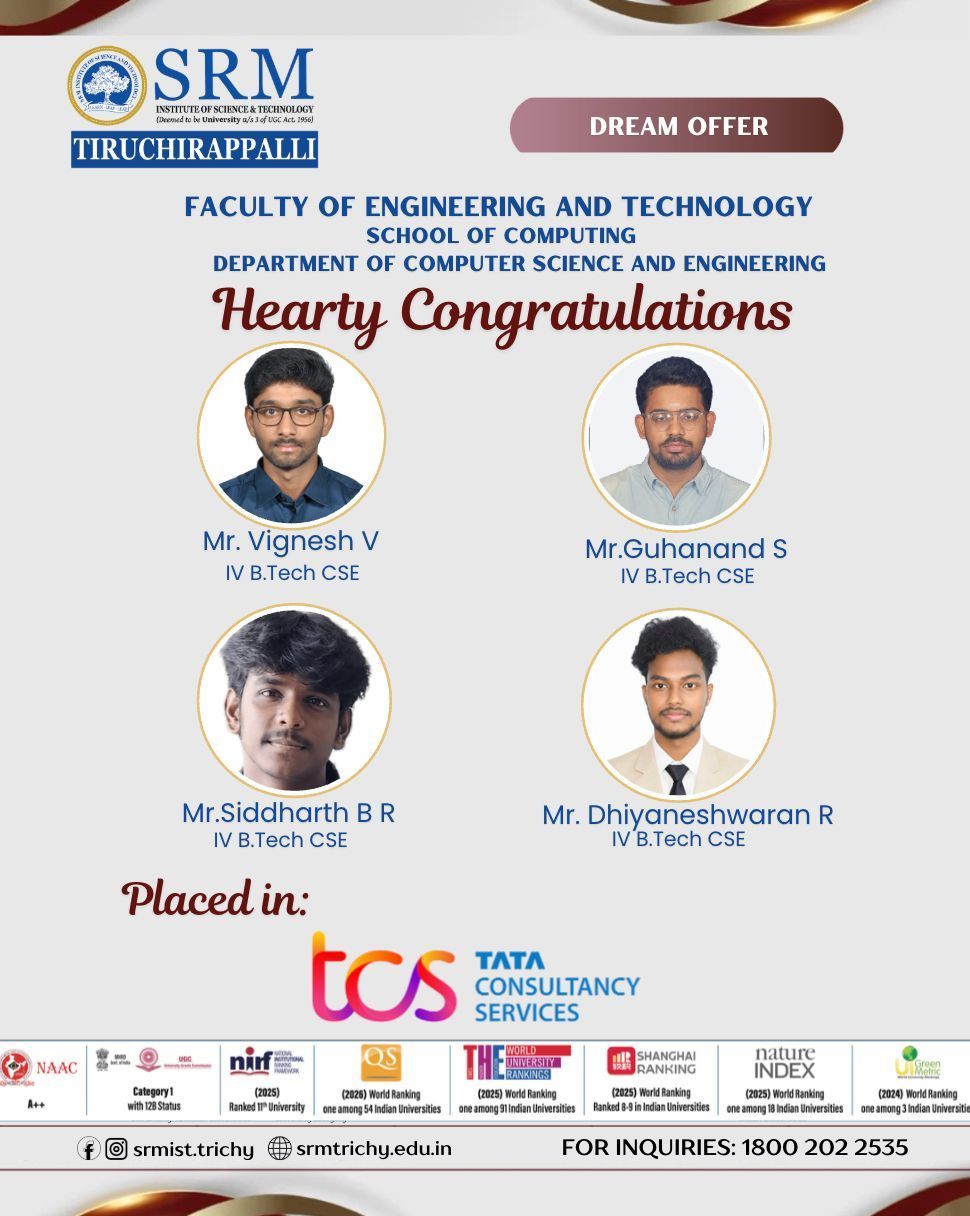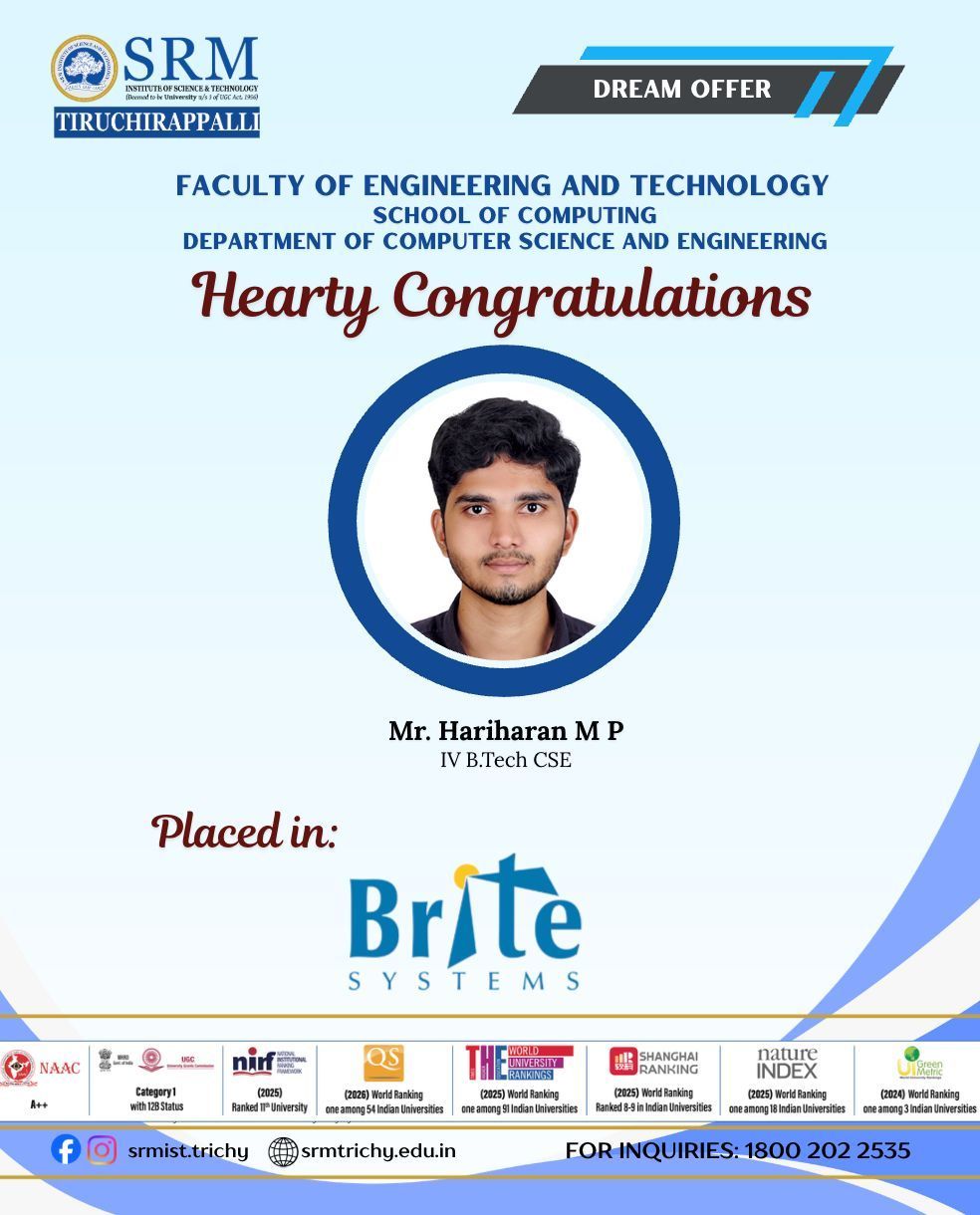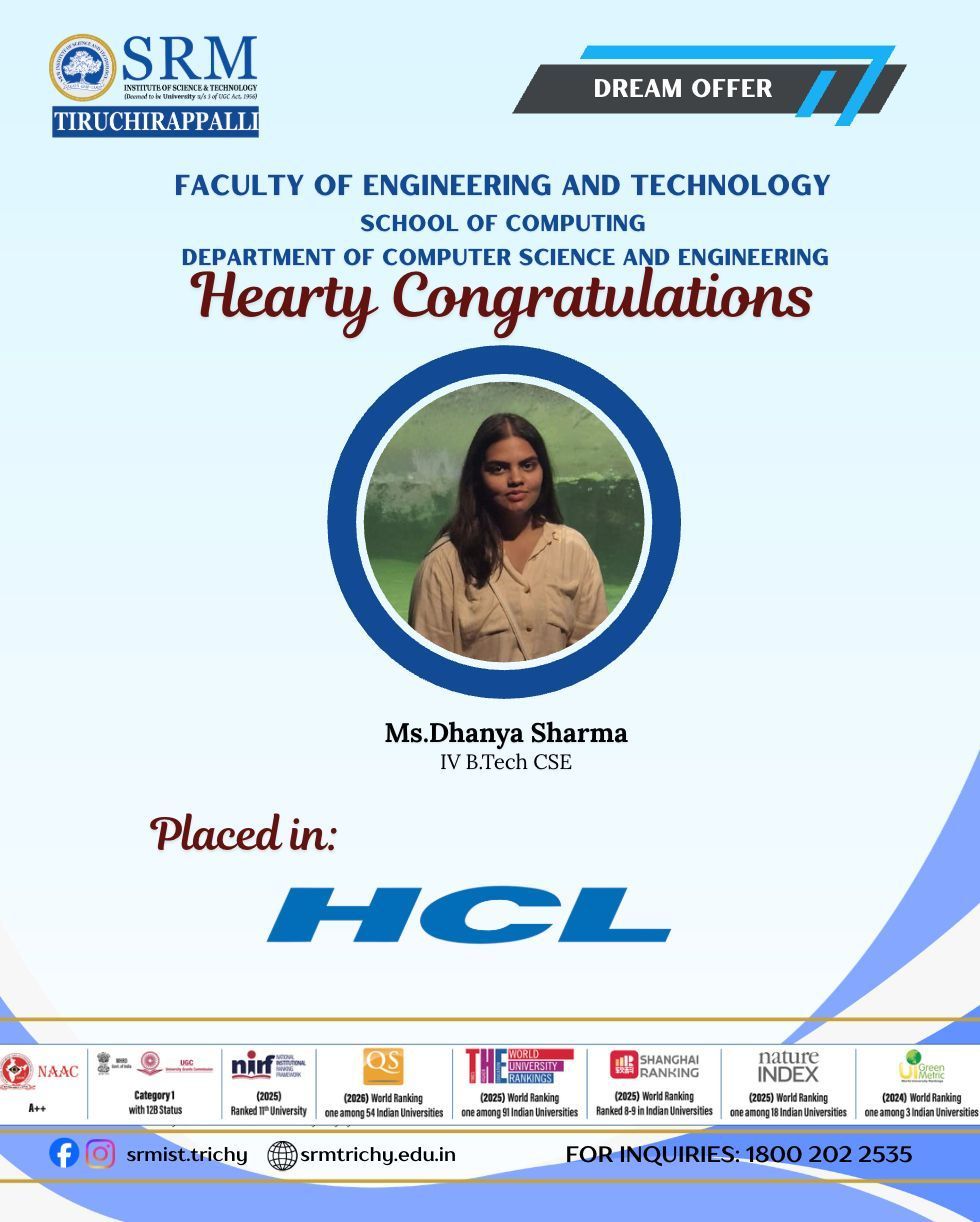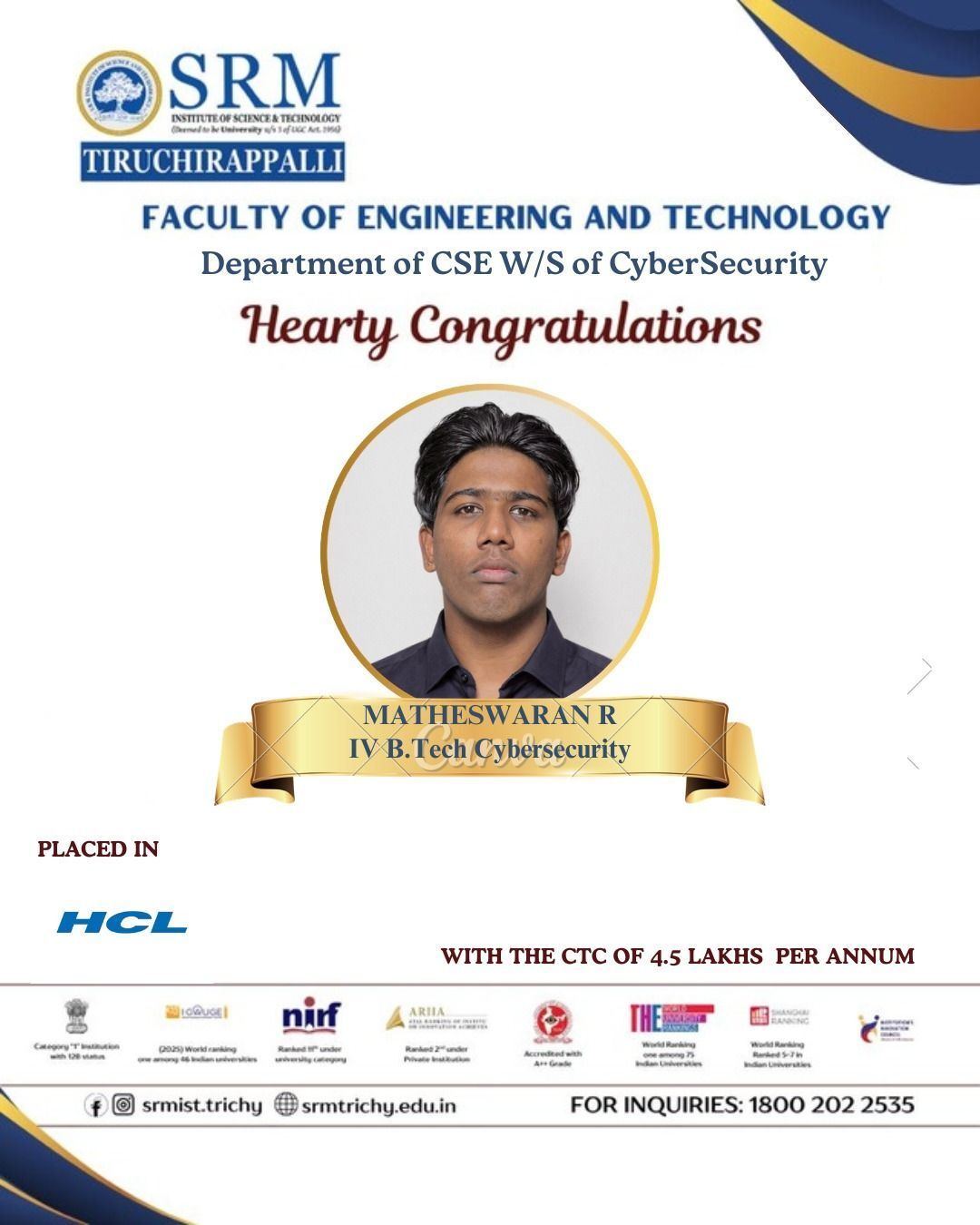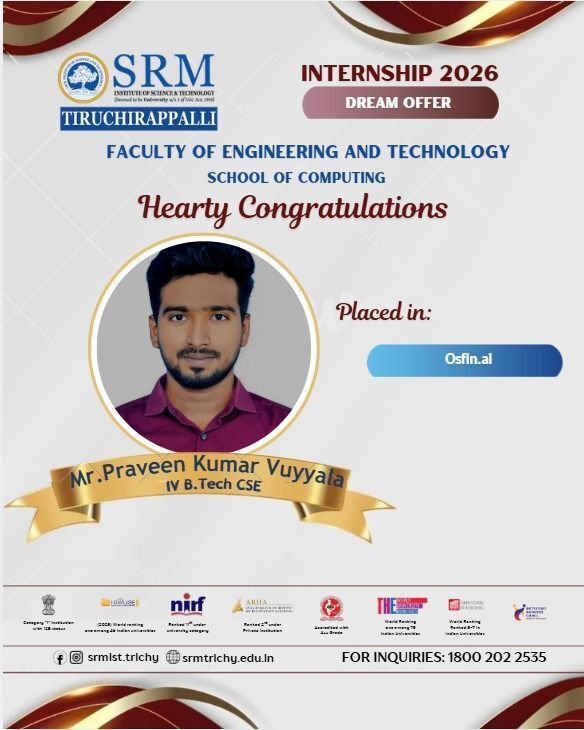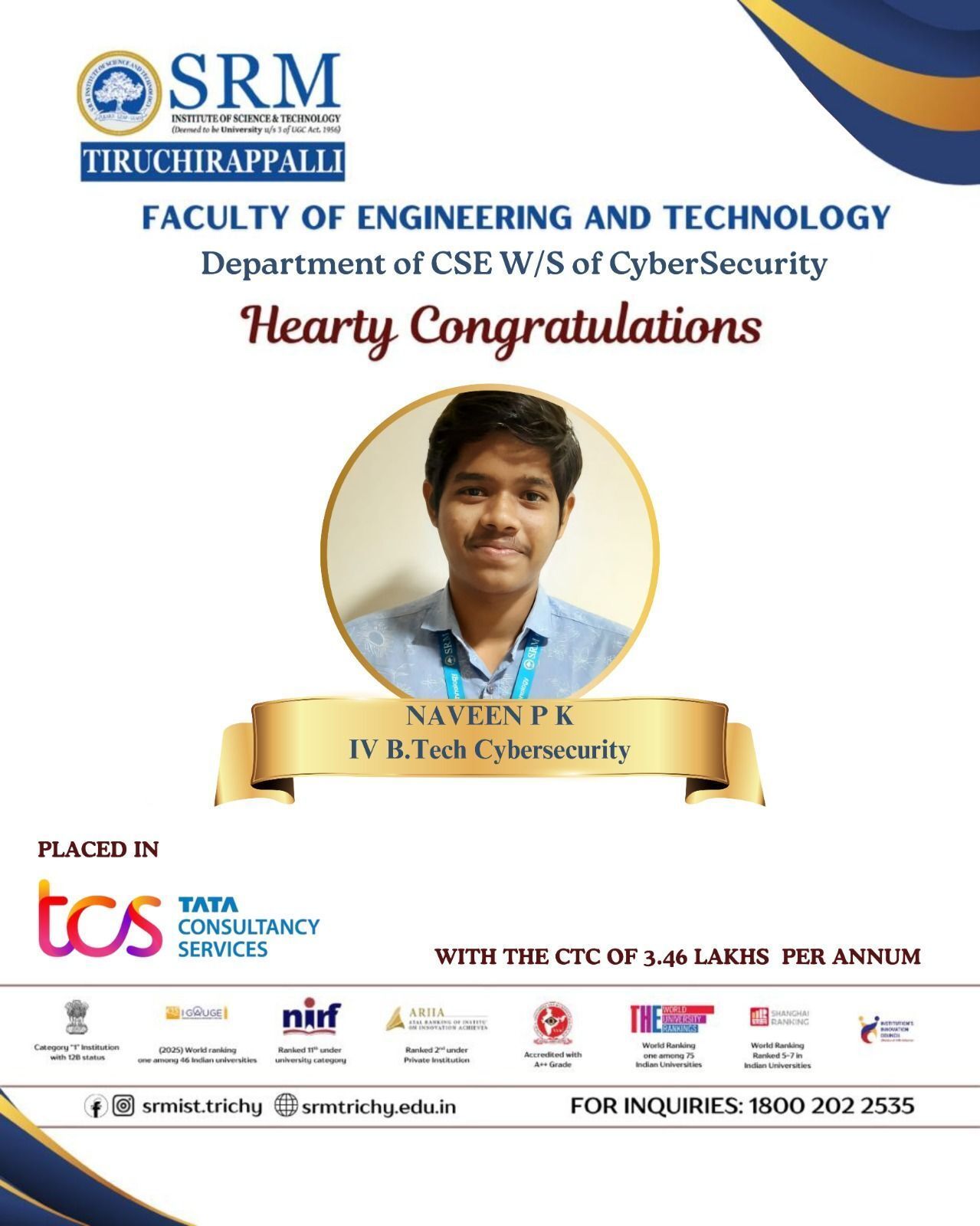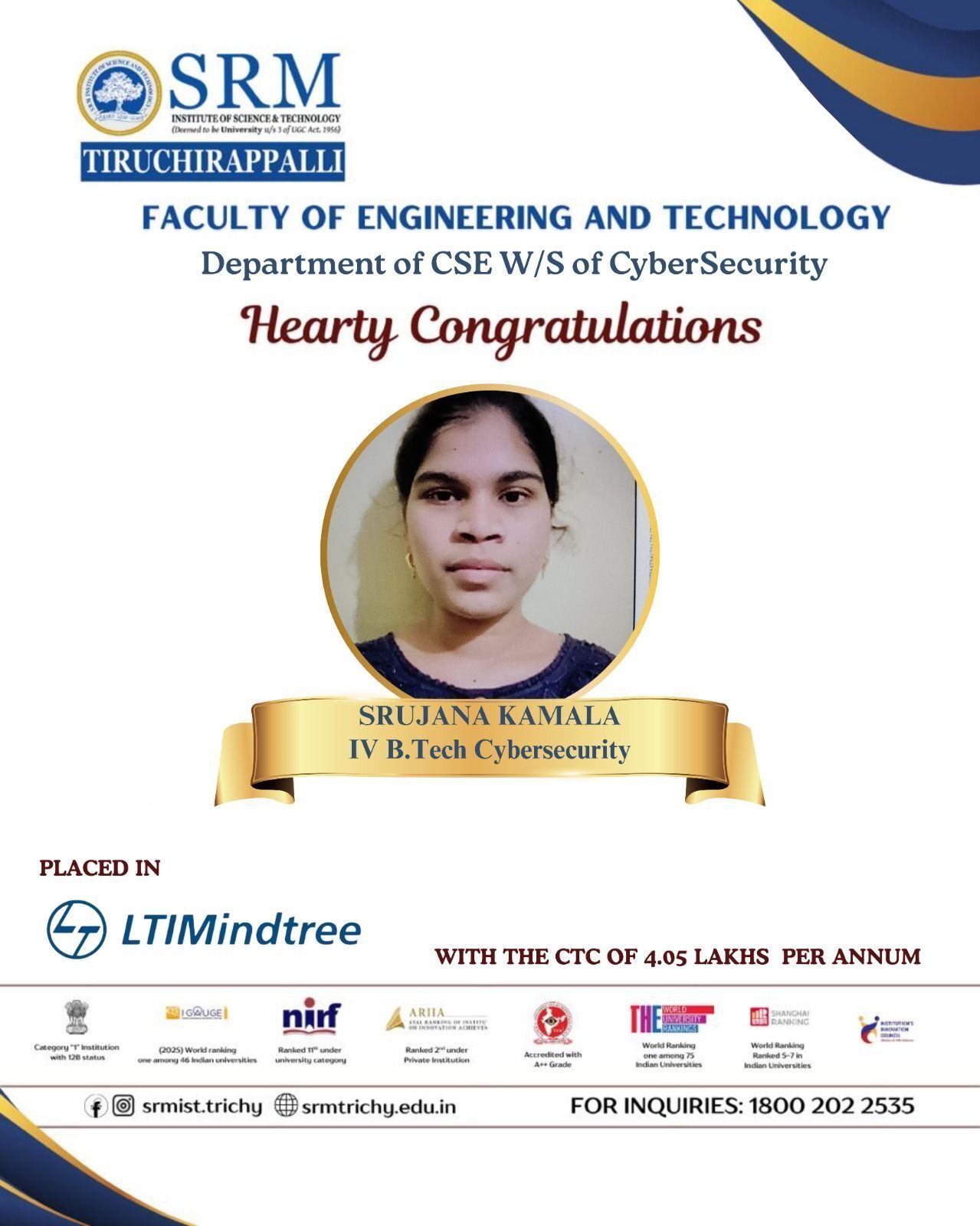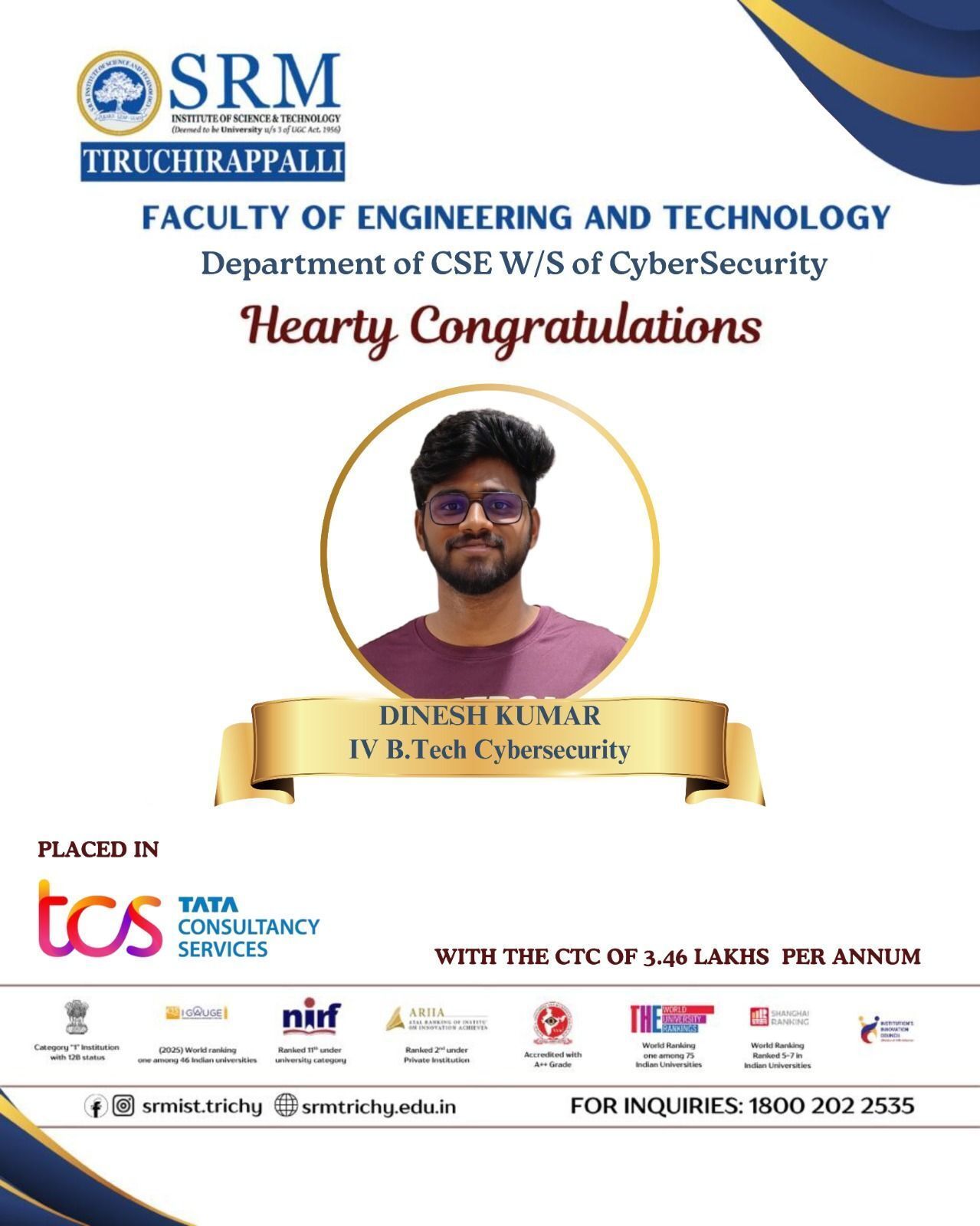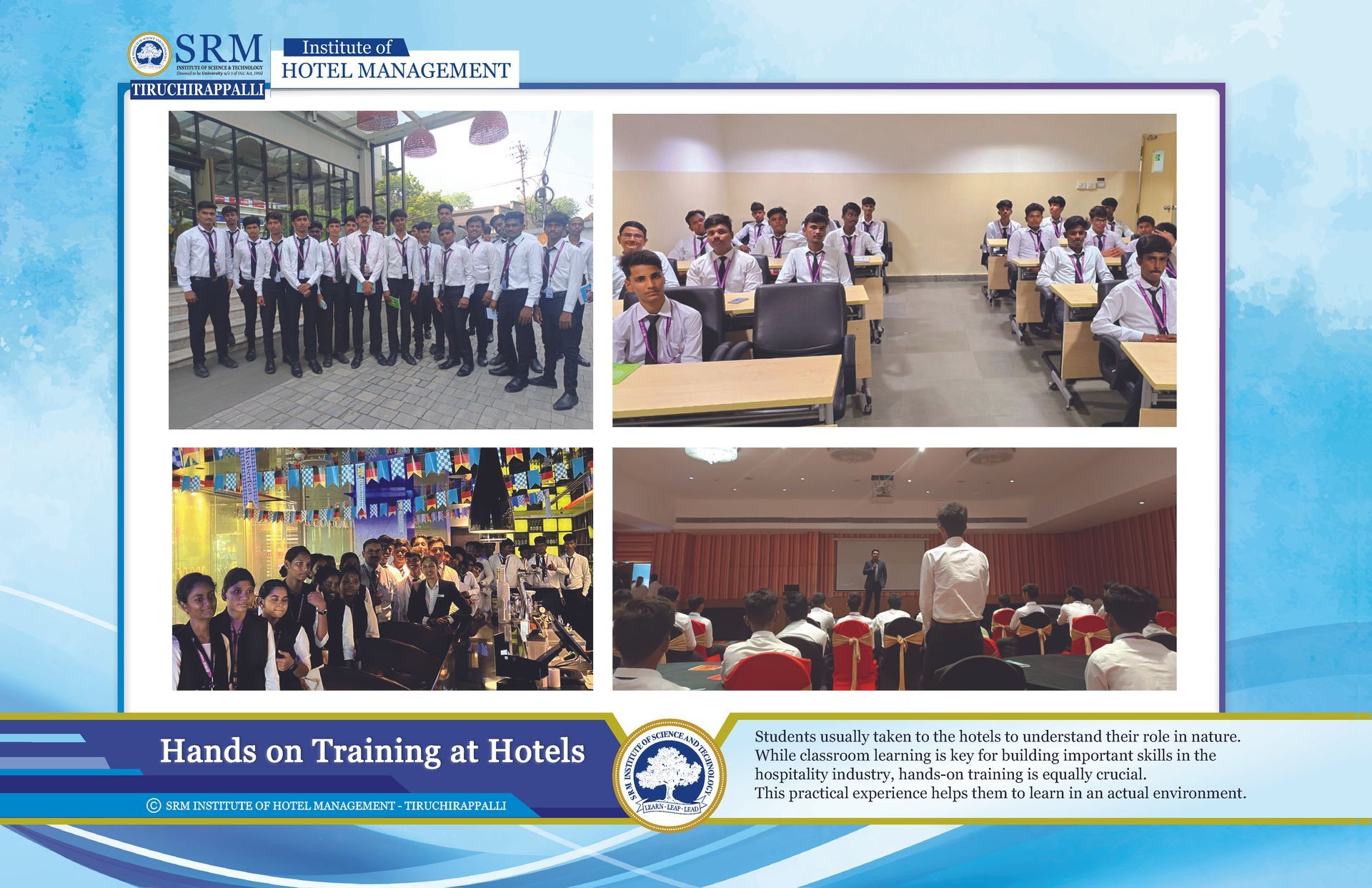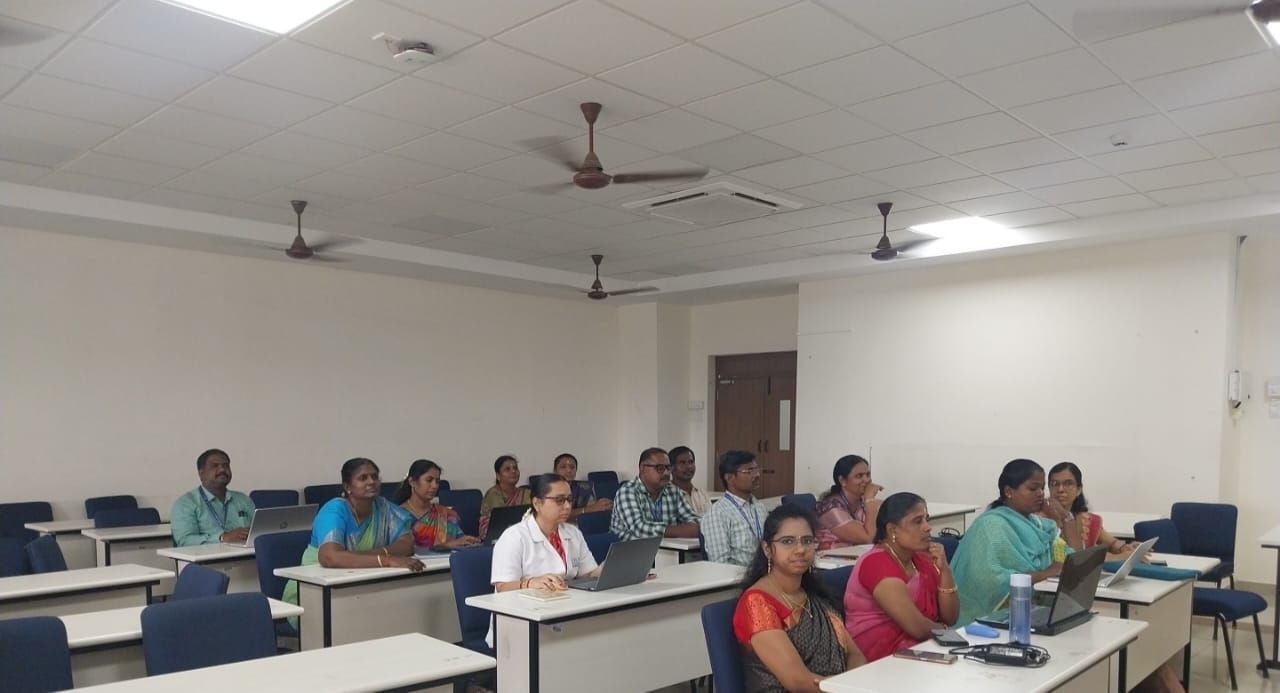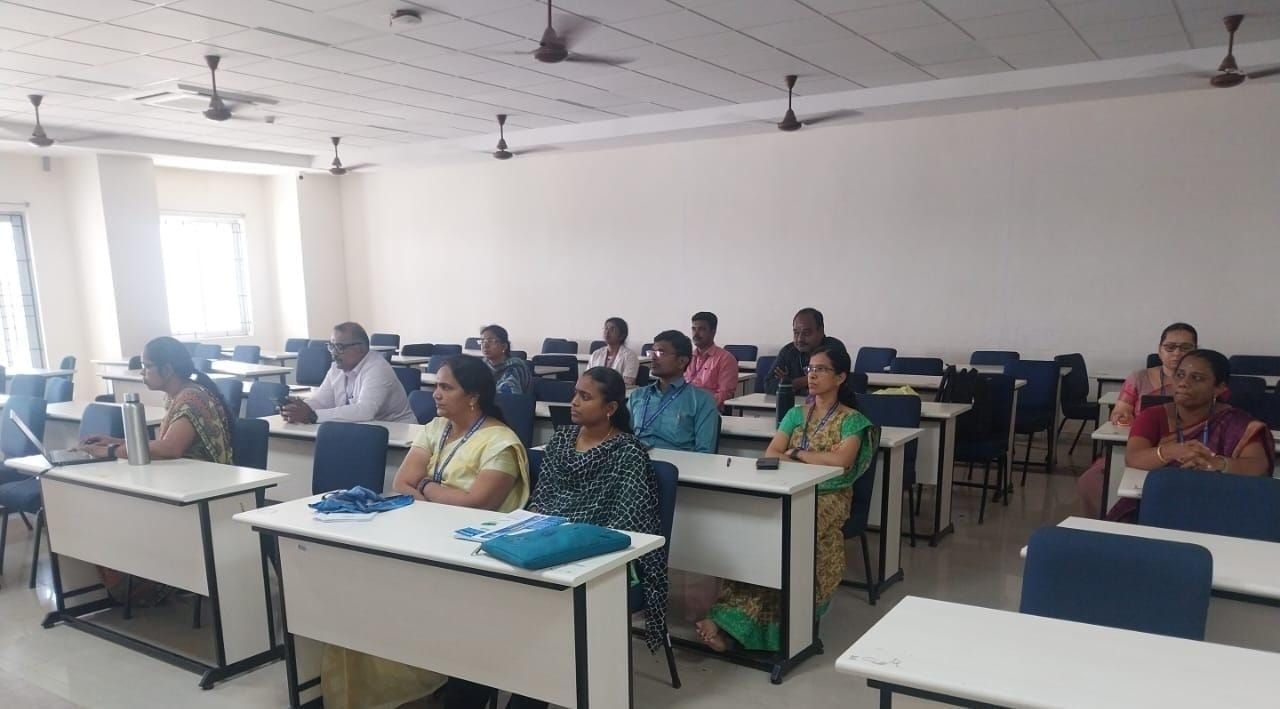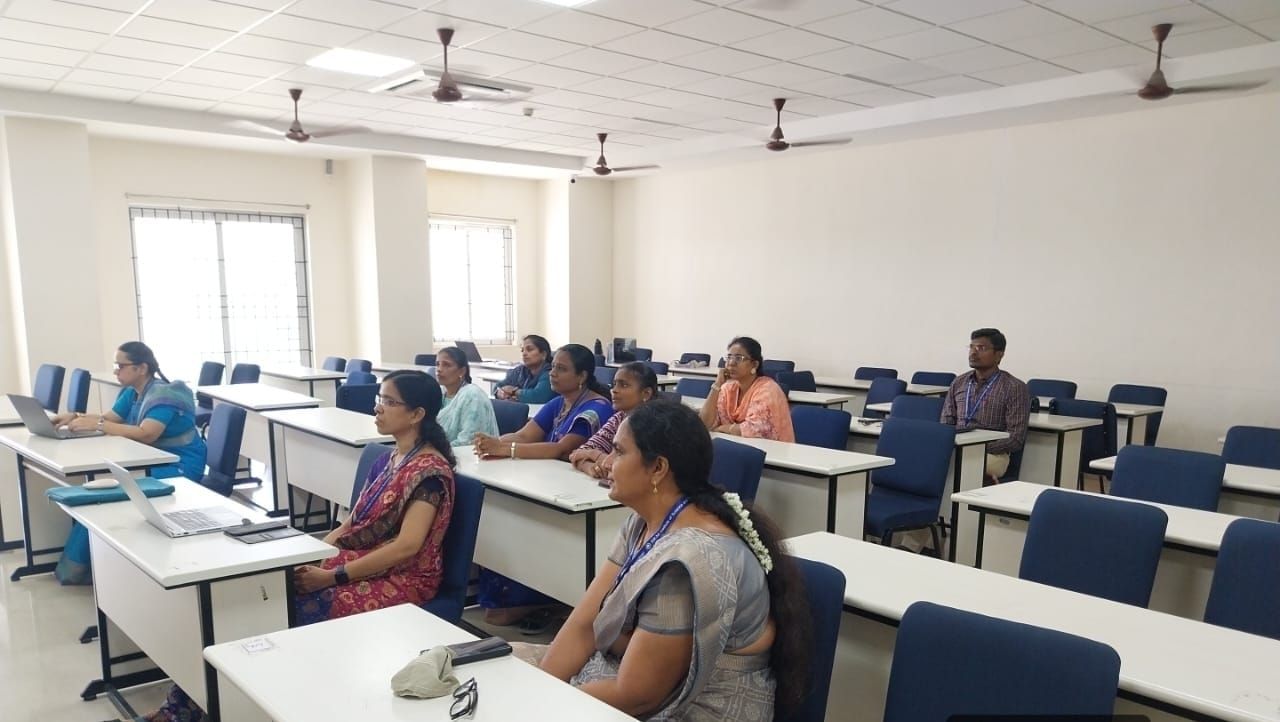The Department of Commerce, Faculty of Science and Humanities, SRM Institute of Science and Technology, Tiruchirappalli, organized a Certificate Course on Practical Aspects of Goods and Services Tax (GST) as part of its Add-on/Value-added initiatives. The course was conducted from 25th September 2025 to 7th October 2025 with the objective of providing students with practical exposure and conceptual clarity on the functional aspects of GST.
A total of 50 students from the Department of Commerce actively participated and benefitted from the sessions. The course was designed to combine conceptual understanding with hands-on illustrations, including balance sheet examples, compliance requirements, and GST documentation.
List of Services
-
Day 1 (25.09.2025) Introduction to GST with Example Balance SheetItem Link List Item 1
The first day commenced with an introduction to the concept of Goods and Services Tax (GST) — a comprehensive indirect tax that replaced multiple levies such as VAT, Excise Duty, and Service Tax. The session highlighted the implementation of GST on 1st July 2017 with the vision of “One Nation, One Tax, One Market.” Students were briefed on the dual structure of GST (CGST, SGST, and IGST) and the simplified tax mechanism post-GST implementation. Through balance sheet examples, participants understood the shift from multiple tax liabilities to a consolidated GST payable liability.
-
Day 2 (26.09.2025) Main Heads for GSTItem Link List Item 2
The second session offered a detailed overview of the main heads under GST, emphasizing its practical applications, compliance procedures, and operational framework. The session covered registration, tax slabs, returns, and filing mechanisms. The resource person elaborated on the conceptual and procedural structure essential for real-world business transactions and accounting practices under GST
-
Day 3 (29.09.2025) Blocked Credit and Common Credit under GSTItem Link List Item 3
The third day focused on Input Tax Credit (ITC), particularly Blocked Credits and Common Credits.
Ineligibility of credits on motor vehicles for personal use, food and beverages, outdoor catering, beauty and health services, and club memberships. Disallowance of credits on works contracts for immovable properties, composition scheme taxes, and goods used for personal consumption. Treatment of goods lost, stolen, destroyed, or given as samples. The session enabled students to understand the nuances of ITC claims and restrictions under GST law.
-
Day 4 (06.10.2025) E-Way Bill SystemItem Link List Item 4
This session provided insight into the E-Way Bill (Electronic Way Bill) — an electronic document generated on the GST portal for tracking the movement of goods. The purpose and significance of the E-Way Bill in ensuring compliance and curbing tax evasion. Intra-state and inter-state transportation requirements. The role of technology in maintaining transparency in goods movement and ensuring a smooth logistics system under GST.
-
Day 5 (07.10.2025) Final Assessment TestItem Link
The final day concluded with an assessment test designed to evaluate the participants’ understanding of both theoretical and practical aspects of GST. The test assessed key areas such as GST registration, input tax credit, e-way bill procedures, returns filing, tax computation, and compliance mechanisms. The evaluation aimed to measure the participants’ ability to apply GST concepts in practical business and accounting scenarios.
